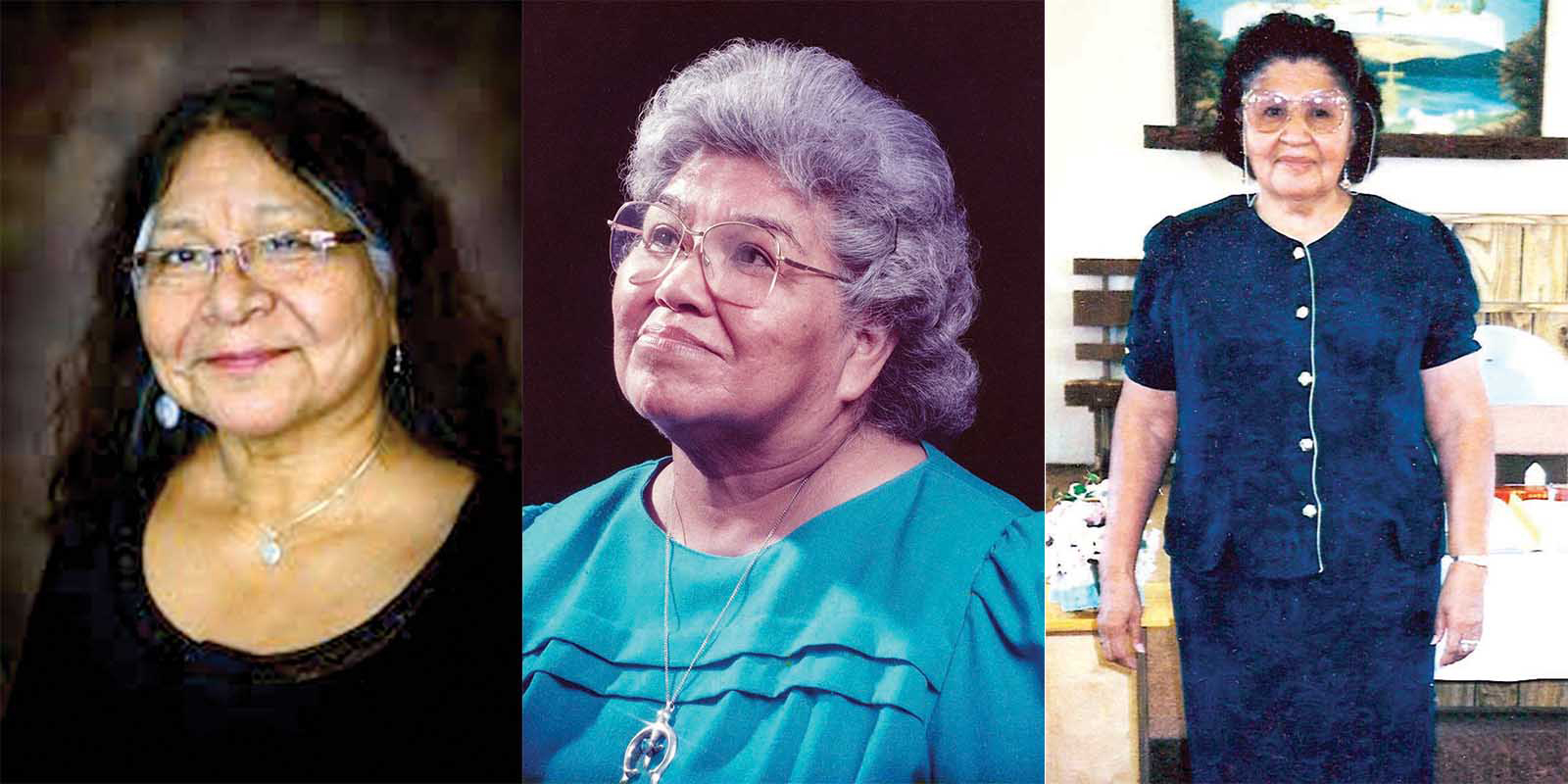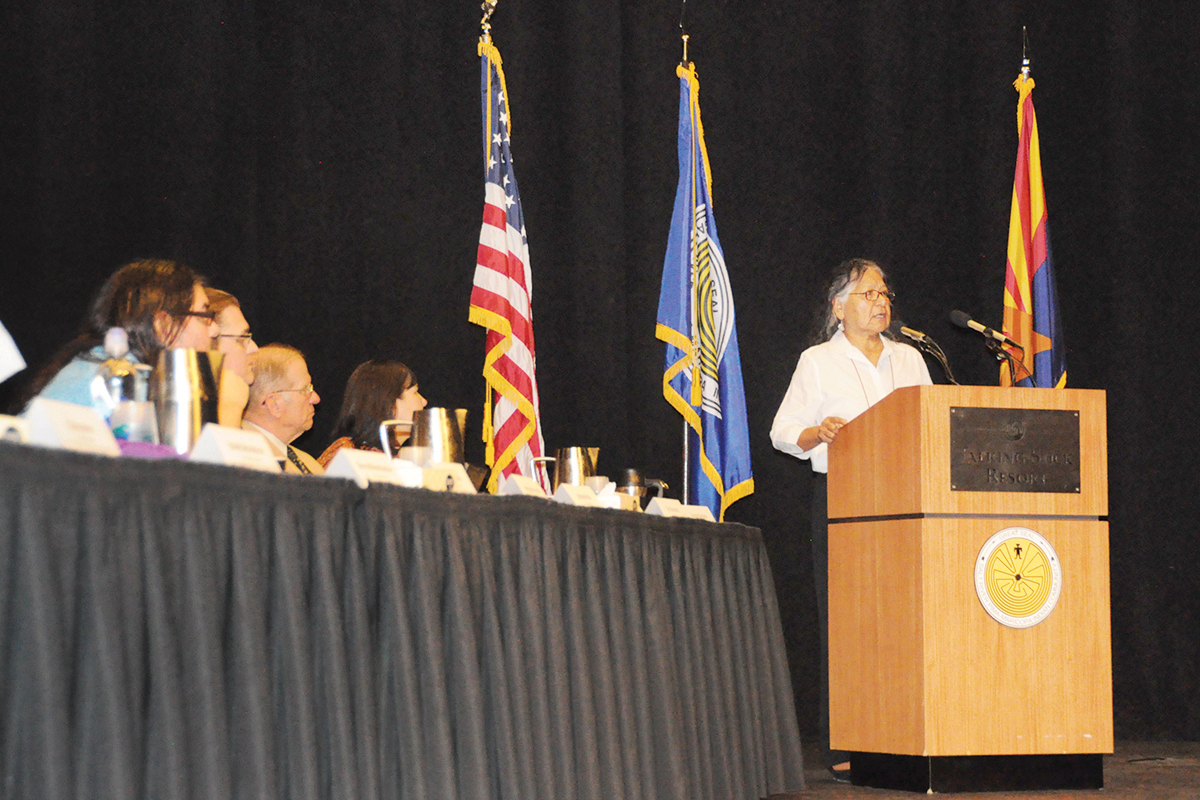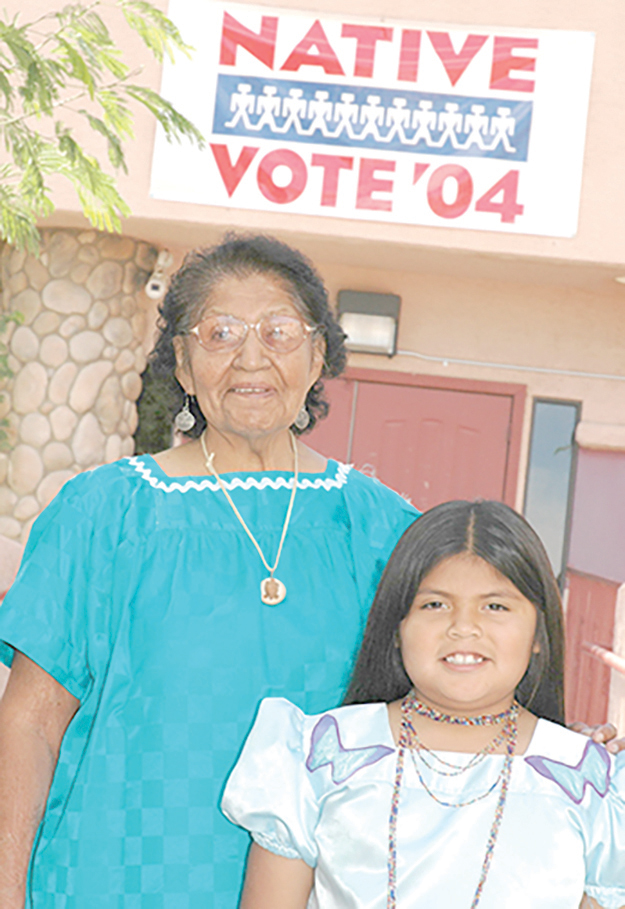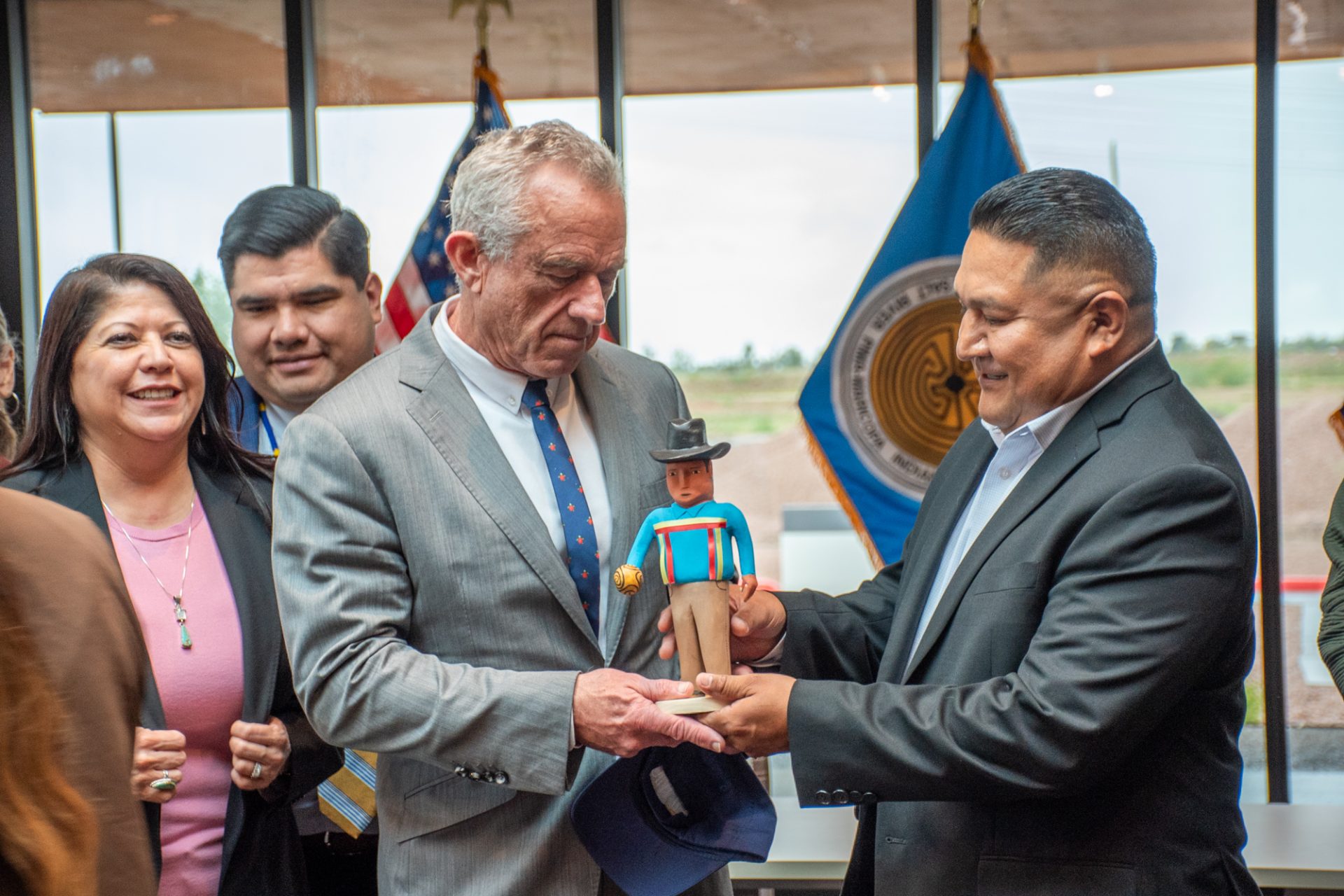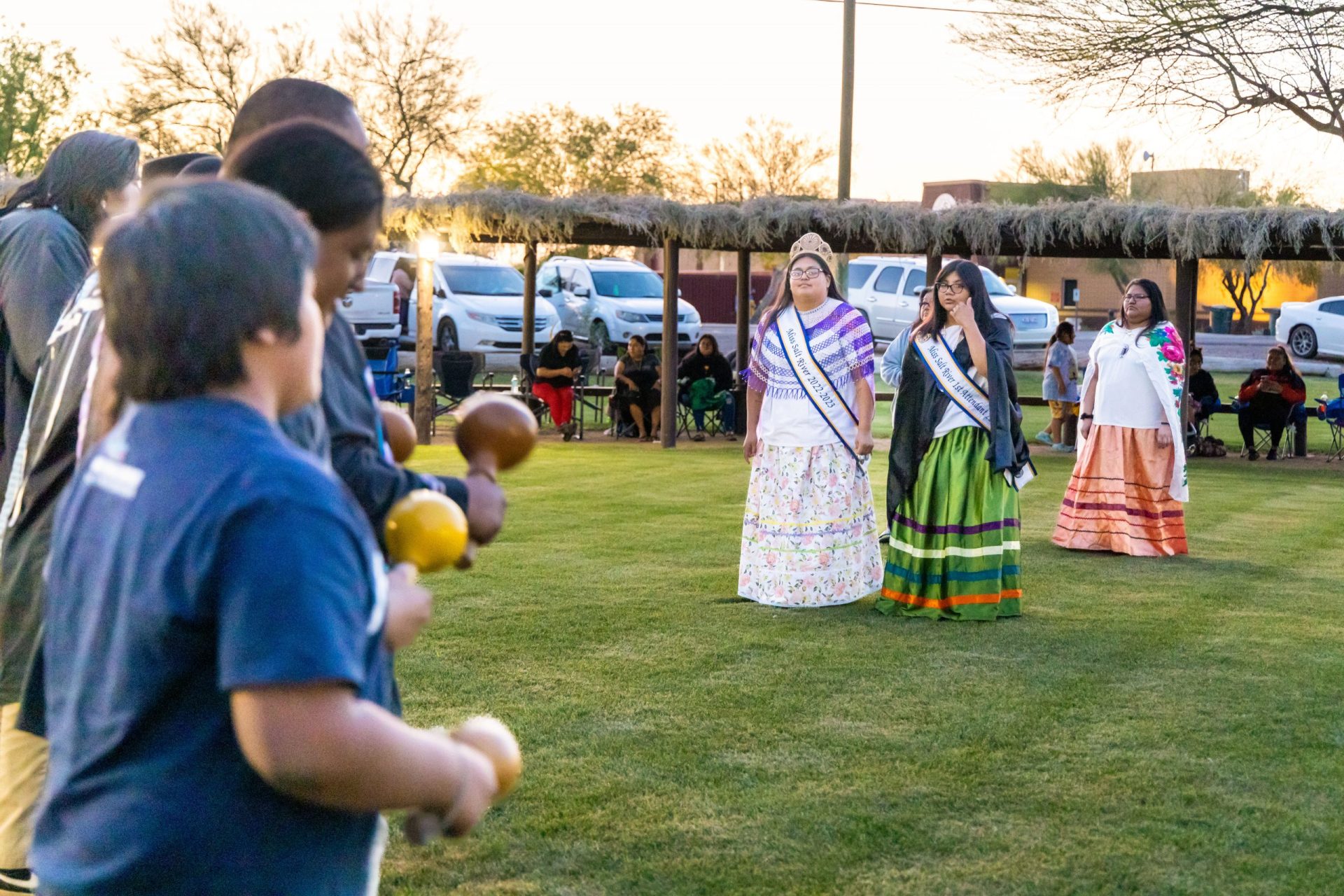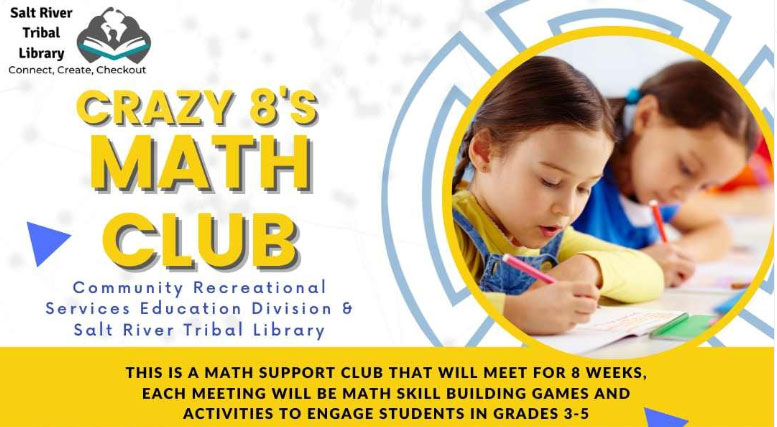VIEWS: 4059
July 1, 2021Three SRPMIC Leaders Read into Congressional Record by Congressman Greg Stanton
Three Salt River Pima-Maricopa Indian Community women were recognized on June 18 by Greg Stanton, who represents Arizona’s 9th District in the U.S. Congress. During a virtual presentation that was available to watch online, Rep. Stanton read statements into the Congressional Record honoring SRPMIC Council Representative Diane Enos and SRPMIC members Ruth Chough and the late Violet Perkins for their lifetime of achievement and immense contributions to the Community and to Indian Country. Their contributions are now memorialized in the Congressional Record and the history of the nation.
SRPMIC President Martin Harvier welcomed everyone who joined the virtual event and said he looked forward to the time when people can celebrate special events such as this in person in the near future.
“Congressman Stanton has been committed to tribal communities since he was elected to Congress, … even though he does not have any tribal community in his congressional district,” said Harvier. “… Congressman Stanton is committed to shining a light on individuals who have made and are making a difference in their communities. I have always said our Community has been blessed with great leaders who have built a strong foundation for our future. We should be proud to walk in their footsteps and to build a stronger foundation for the future generations.”
“These three amazing women have done so much, not just for the SRPMIC, but for the larger community that we’re so lucky live in,” said Stanton. “I as a member of Congress get to do something that is really cool when it comes to honoring people, and that is to [enshrine] people’s lives and legacies into the Congressional Record, which therefore makes it a permanent part of American history.”
The Congressional Record is the permanent record of the proceedings of the Congress of the United States and can be accessed through the Library of Congress, with bound hard copies in person and digitized copies online at www.congress.gov/congressional-record.
Here is the full text of the tributes read into the Congressional Record by Rep. Stanton.
Diane Enos
Madam Speaker, I rise to recognize and honor the contributions of President Diane Enos, current Council member and former two-term president of the Salt River Pima-Maricopa Indian Community. One of the greatest leaders our state has ever known, President Enos has been a champion for the Salt River Pima-Maricopa Indian Community and all tribes in Arizona. Her leadership serves as a model for tribal communities across the nation. For her incredible lifetime achievement, she was named one of Arizona’s Women of the Century, and her legacy deserves to be forever etched in our historical record for all to remember.
Born on the Salt River Pima-Maricopa Indian Community, President Enos strove to be the best in all challenges she chose to meet. As she attended classes at the Arizona State University School of Law, she worked as a reporter for the Scottsdale Progress and ran for a Council seat in her Community. While serving on Council, caring for family members, and attending and graduating from law school with honors, she passed the Arizona bar exam—on her first attempt. President Enos spent many years working as a defense attorney for the Maricopa County Public Defender’s Office while still serving on Council. As the first attorney in Salt River, Ms. Enos was instrumental in inspiring those around her to pursue law degrees of their own.
After four terms as a Council member, the Community elected Ms. Enos to serve as their president in 2006. President Enos brought her dynamic leadership to move the Community forward. During her tenure, she was a relentless advocate for children and families. In partnership with the Community Council, she established a parent advocate program, a Family Advocacy Center, and worked to ensure every child had a bright future and a loving family. President Enos and her work have left an immeasurable mark on our state and its children. Through all this, she demonstrated by example to her Community the value of a strong work ethic, education, commitment to family—and how crucial these values are to building a better society.
Even more than a family advocate, she was a visionary. President Enos drove development in the [Community’s] Entertainment District, including bringing life to Talking Stick Resort and Salt River Fields, the only Major League [Baseball] spring training facility on tribal land. Her vision shaped and inspired so many, and because of her work, the Salt River Pima-Maricopa Indian Community is a better place. President Enos continues to share her profound historical knowledge and leadership by serving on several tribal enterprise boards, most notably the SRPMIC Gaming Board and the Salt River Materials Group.
Madam Speaker, I am privileged to recognize President Enos for the work she has done across Arizona. She has always given all her time, heart and soul to the betterment of the Salt River Pima-Maricopa Indian Community. Today, I extend my heartfelt gratitude and appreciation for her service. I wish her the best as she continues her work on the Tribal Council to create a brighter future for all those she has shaped and inspired.
Ruth Chough
Madam Speaker, I rise to honor the lifetime achievement of Ruth J. Chough, a renowned and influential leader in the Salt River Pima-Maricopa Indian Community. Mrs. Chough is a trailblazer in our state, a champion for her Community, a leader of real consequence who has bolstered the ladder of opportunity of so many throughout Arizona.
Born on June 6, 1930, in Sacaton, Arizona, Mrs. Chough, a full-blooded Pima Indian, grew up with her loving parents, who endowed her with a strong work ethic and sense of community. Raised in a home without electricity or running water, Mrs. Chough overcame barriers and challenges to strengthen her Community and preserve the culture of her people.
Even as a Salt River Day School attendee, she always said her first form of education was from the Salt River United Presbyterian Church, where she has been a lifelong member. Firmly rooted in her faith, Mrs. Chough served as an elder and Sunday school teacher, as well as other leadership roles in the church, using her experiences as a guiding light behind her work across Arizona.
Mrs. Chough attended teacher’s aide training at Arizona State University and began her career in the field of education. She was an inspiration to the students who had the great privilege to learn from her. Because of her invaluable work, the SRPMIC Council appointed her to serve on the Education Committee, which is now known as the Salt River Education Board. She constantly advocated for the best interest of the students, teachers and administrators because she knew they were the foundation of what made a better community.
Her time on the board fueled her passion for service. Mrs. Chough became deputy registrar for the State of Arizona. She was a fierce advocate for voting rights, giving tools and resources to all Arizona citizens to exercise the sacred right to vote, especially tribal communities.
Mrs. Chough served on the Tribal Council, where she was instrumental in designing the Memorial Hall and representing the Community across the country. In all her years in public service, she never lost sight of the importance of education. Because of her tremendous passion for students and building better communities, Mrs. Chough’s leadership was instrumental in building the first-ever high school in the Salt River Pima-Maricopa Indian Community.
Madam speaker, I humbly rise to extend my heartfelt gratitude and appreciation to Mrs. Chough for her immense contributions to our state. A leader, advocate and community servant, her life’s work remains enduring in our community and I wish her the best as she continues to create a legacy that will be felt for generations to come. Thank you, Mrs. Chough.
Violet Perkins
Madam Speaker, I rise to honor the life and legacy of the late Violet Perkins, who sadly passed away on April 1, 2007. Ms. Perkins lived through transformational times that our state and country confronted in the Great Depression, World War II, the economic boom of the 1950s, and decades of continued civil rights injustices and struggles for communities of color and indigenous nations, many of which persist today.
Despite these severe swings of history, Ms. Perkins’ convictions were fortified and her personal mission only became clearer as she grew older. Throughout her life, Ms. Perkins was guided by her strong faith in the church of the Nazarene. She dedicated her life to serving the Salt River Pima-Maricopa Pima Indian Community and leaving it better than she found it.
She molded herself into a unifier and leader, coincidentally growing up in an indigenous community that was divided into two tribes, two cultures, two languages, to only be later molded into one by age-old universal values that have stood the test of time. Ms. Perkins did her best to live these values and do right by her family and Community through her devoted and passionate public service and keeping sacred traditions and memories alive through her personal and professional life.
Earlier in her adulthood as a hospital housekeeper and eventually a nurse at HonorHealth Scottsdale Medical Center, Ms. Perkins cared for her neighbors during their most vulnerable [… ] need. As someone who held a tremendous amount of respect for her elders and valued their experiences and insight, Ms. Perkins made protecting them and advocating what is best for them her entire life’s mission. Ms. Perkins kept a crucial part of her ancestors’ legacy a now slowly fading language as an Akimel O’odham translator and interpreter for the Maricopa County Elections Department. Because of her advocacy, more American Indians registered to vote in both state and national elections.
She also served as vice president of the Arizona Indian Council on Aging till 2005, where she led a conference planning meeting, chaired the disabilities meeting and educated state legislators on tribal aging issues.
Her advocacy to get more indigenous communities to vote has been recognized by the Inter Tribal Council of Arizona and the Arizona Indian Gaming Association. Her life of selfless service has been memorialized in the University of Arizona’s Women’s Plaza of Honor. And now her life’s work will forever be etched in the historical record of the United States of America.
In this spirit of remembrance, I rise to honor the tremendous life and legacy of Violet Perkins. Thank you, Ms. Perkins, and godspeed.
As he closed the event, Congressman Stanton once again congratulated the honorees and their families. Their work and achievement reaches beyond tribal community borders and has helped everyone in Arizona.
“All of Arizona owes you a debt of gratitude,” said Stanton. “Diane Enos, Ruth Chough and the family of Violet Perkins, thank you, because I know through the level of public service that you all engage in it takes a village, family and community of support, and we are so thankful that you have lived the lives of service that you have.”
Honoree and Family Responses
__________________________________
Diane Enos
Council member and past SRPMIC President Diane Enos graciously thanked Congressman Stanton for the honor and acknowledged that her accomplishments rest on the shoulders of those who came before.
“Accomplishments of any individual … must be acknowledged as a result of our connections to each other and our past. And what has been given to us from our parents, relatives and our common history here, since we are in a sense tied together by birth. … The good of our people is this call to service, and it comes from our land, water, children and our identity. Accomplishments during any individual’s term as president are the results of the work of Tribal Council.”
Enos acknowledged past and current Council representatives Ivan Makil, Merna Lewis, Lance Grey, Grinelda Gates, Tom Largo, Anthony Collins, Ricardo Leonard, Claire Miller, Lynn Myore, Dixie Padilla, Delbert Ray Sr., the late Lorna Ray, Willardine Sampson, Deanna Scabby and Martin Harvier. She also acknowledged fellow honorees Chough and Perkins.
_________________________________
Ruth Chough
“I want to thank you for honoring these great women of our Community and this great nation. My hope is that this is only the beginning of our country’s recognition of all the past, present and future contributions of indigenous peoples of this continent to the nation and to the world,” said former SRPMIC President Ivan Makil. “Woman have always been an important part of the foundation of our culture and our communities. Mrs. Ruth Chough, throughout her life, has exemplified the cultural responsibilities, spirit and values of Native women. During her time as a Council member, the Community was challenged with several issues that had significant impacts on the future of our Community. Her advocacy has always been for the people of the Community and the Community’s resources. She is an example of leadership that understands the foundational principles that are required to create a thriving and sustainable community. Thank you, Mrs. Chough, for your leadership and commitment to the Salt River Pima-Maricopa Indian Community and all of our people and the nation.”
“On behalf of my mother, she would like to [express] her gratitude for the love and support my father and I gave her when she was serving our Community,” said Karilyn D. Smith, daughter of Ruth Chough. “Mom, I would like to say to you, you have a special way of keeping your family and Community strong. With our deepest love and gratitude from the Community, family, friends and especially from Roger and I, we love you.”
__________________________________
Violet Perkins
“I remember her as a humble, smart and strong woman,” said Alyssa Leonard of her grandmother, the late Violet Perkins. “When I ran for Miss Salt River, I dedicated my essay to her, telling everyone how hard-working she was and how she never gave up on her dreams, no matter what obstacles she had. I always looked up to her and she was always telling us about voting and how important it was to vote. Every [time] we went over there she would say we needed to register to vote.”
SRPMIC Vice President Ricardo Leonard also said a few words about his late mother-in-law, explaining that she was part of the relocation program and lived in Compton, California.
“She was connected to her tradition and talked about some of the things she remembered as a young girl. There is a series of songs called the macaw songs—there are at least 200 songs in the series—and she recalled her grandfather singing those songs at nighttime,” said Leonard. “She would be very humbled at this recognition right now; she would say, ‘It’s not about me, it’s about everyone around me and what we have done.’”
Debbie Nez-Manuel said a few words on behalf of Violet Perkins and her husband, Royce Manuel, Perkins’ son.
“When he thinks about his mother’s work, he says it recognizes the importance of arming voters with information.” Especially when it came to propositions that directly impacted Arizona tribes, Perkins worked to ensure that tribal voters were not just reading in English, but were armed with the words of the propositions in their language so they could understand the impact that they would have to their people.
Nez-Manuel thanked everyone who helped recognize these women from the Salt River Pima-Maricopa Indian Community. “Thank you all for your work. We stand on the shoulders of giants.”

